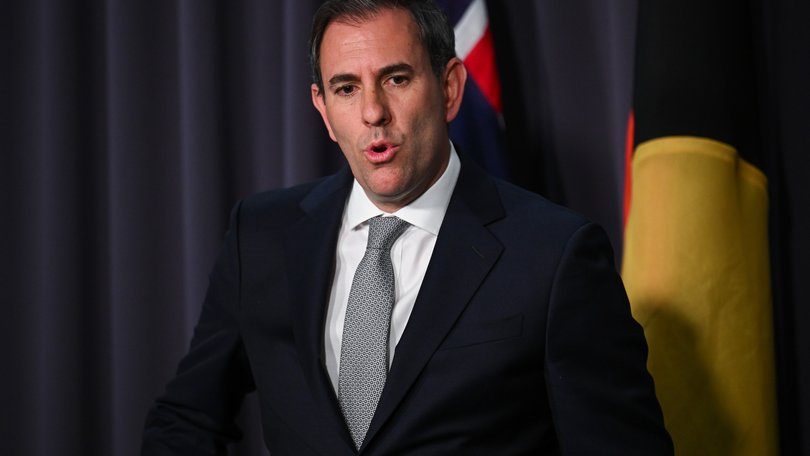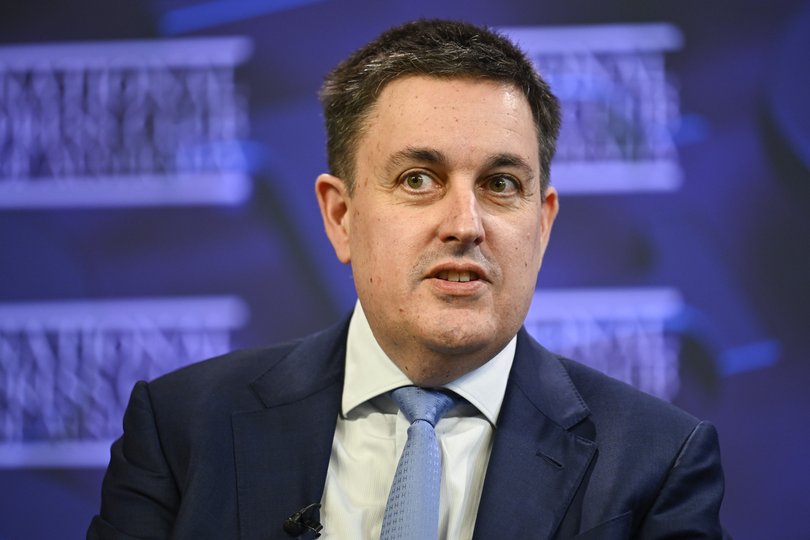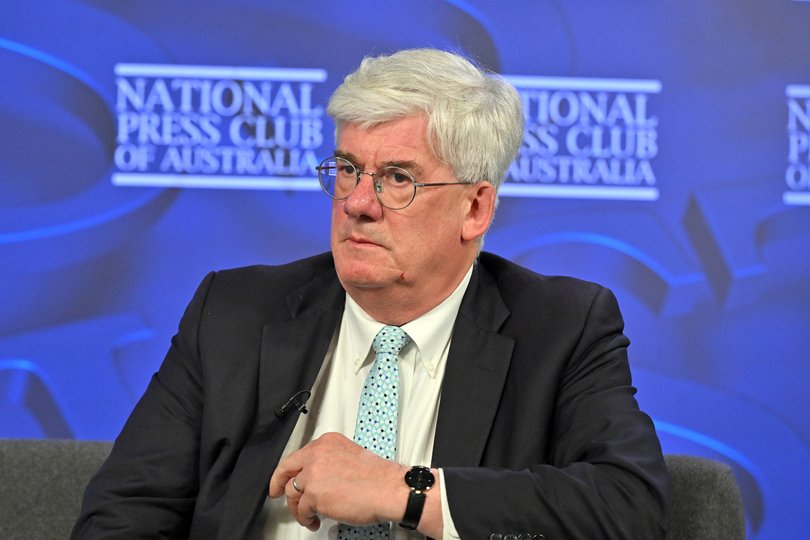Top economics expert calls for Treasurer Jim Chalmers to be axed
An economics professor called on Anthony Albanese to demote Jim Chalmers from the Treasury portfolio, while others said government spending was out of control.

Leading economists called on Labor Treasurer Jim Chalmers to slash spending to tackle a decade of forecast deficits after an academic suggested Dr Chalmers did not fully understand economics and should be demoted.
Richard Holden, a professor of economics at the University of NSW, wrote a scathing column today calling for Prime Minister Anthony Albanese to move him to a new portfolio.
“The hard truth is that Chalmers has no feel for economics. It’s just not his thing,” he wrote in the Financial Review newspaper. “His considerable talents would be better utilised elsewhere in government.
Sign up to The Nightly's newsletters.
Get the first look at the digital newspaper, curated daily stories and breaking headlines delivered to your inbox.
By continuing you agree to our Terms and Privacy Policy.“On his watch a $400 billion revenue windfall – the largest in Australian history – has been blown. On his watch treasury is projecting a decade of deficits – despite heroic assumptions and favourable economic conditions.”
Government spending in 2024-25 hit 26.2 per cent of gross domestic product, which was the highest since 1986 outside of the COVID pandemic.
This was despite Treasury’s Final Budget Outcome showing higher-than-expected revenue from personal income taxes and company taxes, as a result of iron ore prices holding up.
The Albanese’s Government’s spending levels as a share of the economy is higher than it was under 1970s Labor PM Gough Whitlam and Kevin Rudd during the Global Financial Crisis in 2008 and 2009, when $52 billion was spent funding new school halls and $900 cheques send to Australians to stimulate the economy.

Treasury forecasts a decade of deficits and government spending during the last financial year grew 5.5 per cent, or more than double the 2.9 per cent growth pace of the financial year before that.
Despite efforts to rein in the National Disability Insurance Scheme, independent economist Saul Eslake criticised Dr Chalmers for failing to make a commitment to cap tax and spending each financial year, as previous treasurers had done dating back to Liberal treasurer Peter Costello serving under PM John Howard.
“Previous governments have imposed on themselves some rules about either spending or revenue as a percentage of GDP as a form of fiscal discipline,” he said. “Chalmers threw the rule out.”
Higher government debt as a result of COVID spending means whoever is in power will have to spend more servicing interest costs.
“It’s actually not easy, it’s not obvious where you can cut spending as 1.5 percentage points of GDP to pay for that additional spending and get yourself elected afterwards,” he said.

This means future governments will be relying on bracket creep, or higher revenue from income taxes as workers into move higher brackets, to eventually get back into surplus.
Professor Robert Breunig, the director of the Australian National University’s Tax and Transfer Policy Institute, agreed Labor needed to cut spending.
“They do need a strong emphasis on expenditure restraint and fiscal discipline if they are going to get Australia back into Budget balance and push productivity,” he told The Nightly.
Dr Chalmers delivered two Budget surplus since Labor came to power in 2022. Reserve Bank of Australia governor Michele Bullock last week criticised the predicted string of deficits.
“If you look at the current government forecasts, there are deficits out into the foreseeable future, quite substantial ones, because spending is growing very quickly and revenue is not as strongly,” she told a Nomura Research Forum in Washington DC.
“If we can’t make the budget stronger during this period, while the economy is doing quite well and there’s lots of people employed, then what happens in the next downturn?”
Asked about that, Dr Chalmers declared he aimed to make spending more sustainable, after dumping plans to tax unrealised gains on super balances above $3 million and not index it for inflation.
“It is a statement of fact that Budgets are under pressure, and we’ve made it clear that we intend to continue our efforts to make the Budget more sustainable,” he told reporters in Washington.
“Don’t forget, you know, we have helped engineer the biggest positive turnaround in the Budget in a single parliamentary term, in nominal terms, of any government ever.”
Australian governments are also under more political pressure to spend more on defence to counter a more assertive China and meeting a goal of reducing carbon emissions by 62 to 70 per cent by 2035.

